Bitter struggle over Ivory Coast cocoa
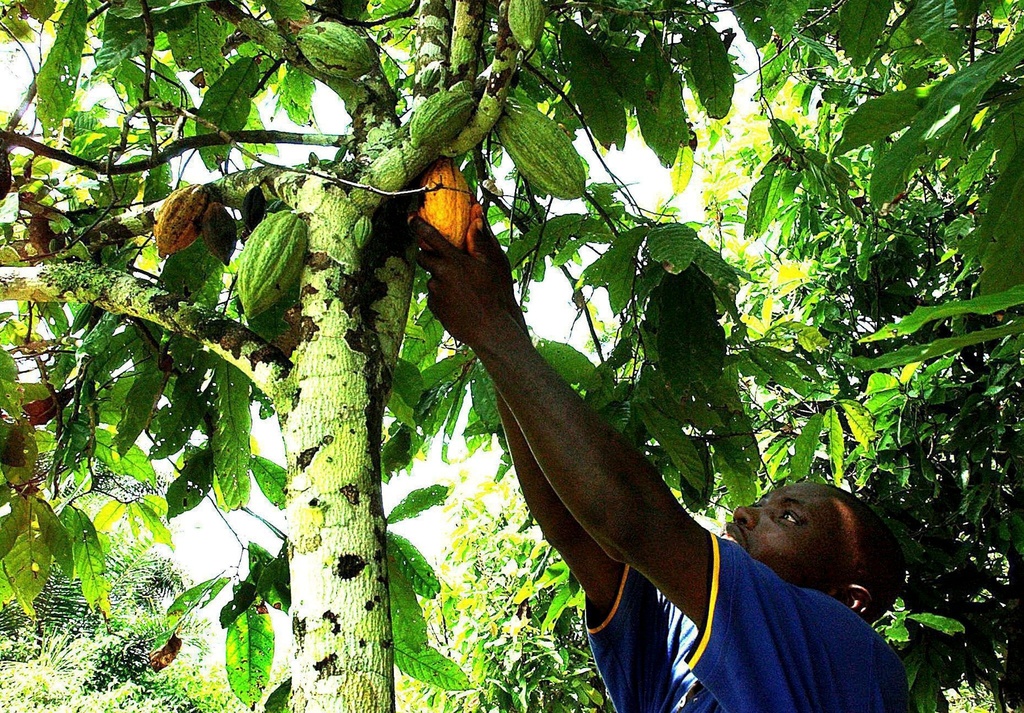
Activists are campaigning for western chocolate manufacturers to stop buying cocoa from Ivory Coast as long as exports are controlled by Laurent Gbagbo.
Last week Ivory Coast presidential claimant Alassane Ouattara ordered a month-long ban on cocoa exports to cut funds from his rival for the presidency, incumbent Gbagbo. Swiss chocolate producers meanwhile downplay their role in the country.
Online activist group Avaaz.org ran an advert in last Saturday’s Financial Times calling on Swiss food giant Nestlé and other leading chocolate firms operating in Ivory Coast to help prevent civil war by refusing to purchase cocoa from what it called “Laurent Gbagbo’s illegal regime”.
“We launched the campaign about two weeks ago and 250,000 people have sent messages to chocolate companies, and large companies like Cargill have agreed to stop sourcing ‘conflict cocoa’,” media campaigner Brianna Cayo Cotter told swissinfo.ch.
However, not everyone is sure it is a good idea.
“I know one chocolate manufacturer that received tens of thousands of emails within a few hours of the campaign being launched. I think the campaign is not really necessary any more. I’ve seen news that 80-90 per cent of beans for export remain there,” Franz Schmid, director of the Chocosuisse, the umbrella group representing Swiss chocolate producers, told swissinfo.ch.
Last week six major cocoa exporters reportedly heeded Ouattara’s call for a ban on exports.
Schmid said Ouattara’s ban was unlikely to have much effect on Swiss chocolate producers.
“It’s not a major concern as hardly anyone is using these beans from Ivory Coast; there are only about three or four companies and it’s only a small amount of their total needs,” he told swissinfo.ch.
According to Chocosuisse, in 2010 Swiss chocolate manufacturers imported four per cent of all the cocoa beans it used, or 1,727 tonnes, from the Ivory Coast, which is the world’s largest cocoa producer.
Over the past five years the Swiss share of cocoa beans from Ivory Coast has fallen dramatically from 24 per cent to 3.5 per cent in 2009 due to quality problems, issues of child labour, bad social conditions and the civil war, said Schmid.
Unfair
Vevey-based Nestlé says it does not export cocoa from Ivory Coast and has criticised the boycott campaign as unfair to African farmers.
“Sometimes these boycotts are not necessarily helping the cause they want to help by pushing hundreds of thousands of small farmers into even greater poverty,” Nestlé chairman Peter Brabeck told Reuters on the sidelines of the World Economic Forum in Davos on Thursday. “I don’t think that’s the right thing to do.”
Barry Callebaut, the world’s largest chocolate maker, meanwhile says it is seeking more clarification on the announcement of the cocoa export ban.
Caobisco, the European Union’s association for the chocolate, biscuit and confectionery industries, of which Barry Callebaut is a member, says its main concern is to ensure the provision of the raw material.
“Our clients have signed contracts with suppliers, which must be met,” spokeswoman Sabine Nafziger told Le Temps newspaper. “We are following the evolution of this delicate situation…we are concerned about the repercussions of a ban on farmers’ incomes.”
Prop up regime
In 2007 a report by the non-governmental organisation Global Witness exposed how money from the international cocoa trade had financed both rebels and government loyalists in the country’s civil war from 2002-2003.
Global Witness questions whether cocoa money is still propping up Gbagbo’s regime.
“Concerns about the cocoa sector have not gone away, and there are now concerns that Gbagbo may now be using the industry to finance his activities, as fears grow that the country could see a return to war,” it said in a statement.
“Cocoa taxes have long been a major source of funds for his regime, and there’s a danger money stolen from the sector is being used to fund the militias now terrorising parts of the population,” added Global Witness researcher Daniel Balint-Kurti.
“Companies should now respect the ban and immediately publish the taxes and levies they have paid on cocoa, so that this money can be properly traced.”
The 2010 presidential election in Ivory Coast was held in two rounds, on October 31 and November 28.
In the second round, Laurent Gbagbo, favoured in the south, was pitted against Alassane Ouattara, who enjoys support in the north.
Provisional results released by the Independent Electoral Commission on December 2 gave Ouattara 54% of the vote.
However, the president of the Constitutional Council declared the results invalid and announced that Gbagbo had won with 51.5%.
Both men subsequently took an oath of office.
Ouattara has been supported by the international community, including the United Nations, the African Union, the Economic Community of West African States, the European Union and the United States.
Switzerland announced on December 30 that it was also giving him its support.
Gbagbo remains in the presidential palace, while Ouattara is in the Golf Hotel in the commercial capital of Abidjan, protected by UN peacekeepers.
Hundreds of people are reported to have been killed in post-election violence.
The West African state is the world’s top cocoa producer, providing 32 per cent of global needs. Last year it produced 1.2 million tonnes. Cocoa and coffee represent some 40 per cent of Ivorian gross domestic product.
Experts claim the impact of the one-month ban may be limited to only 100-200,000 tonnes as most of the recent harvest has already been transported to the ports and will not be affected by this measure.
Sales of Swiss chocolate dropped 5.9% last year, the first fall in volumes for six years.
Sales sank to 174,109 tonnes in 2009 while turnover was down 6.4% to SFr1.7 billion.
Of total production, 60.7% was sold abroad, just up on the 60.3% in 2008.
The downturn was blamed on the general poor global economic conditions, a fall in tourist numbers and the strengthening of the Swiss franc.

In compliance with the JTI standards
More: SWI swissinfo.ch certified by the Journalism Trust Initiative

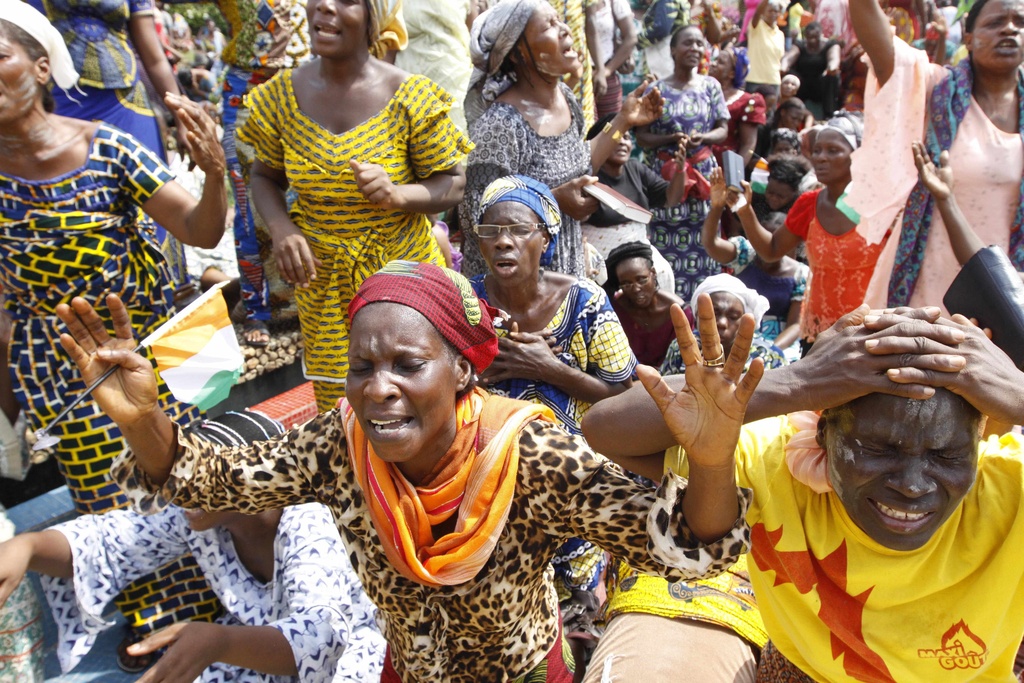
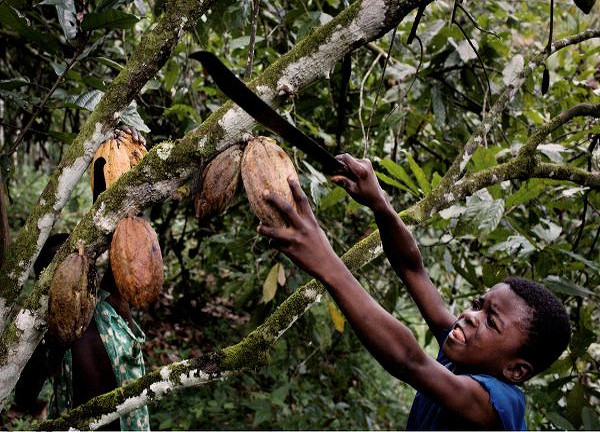
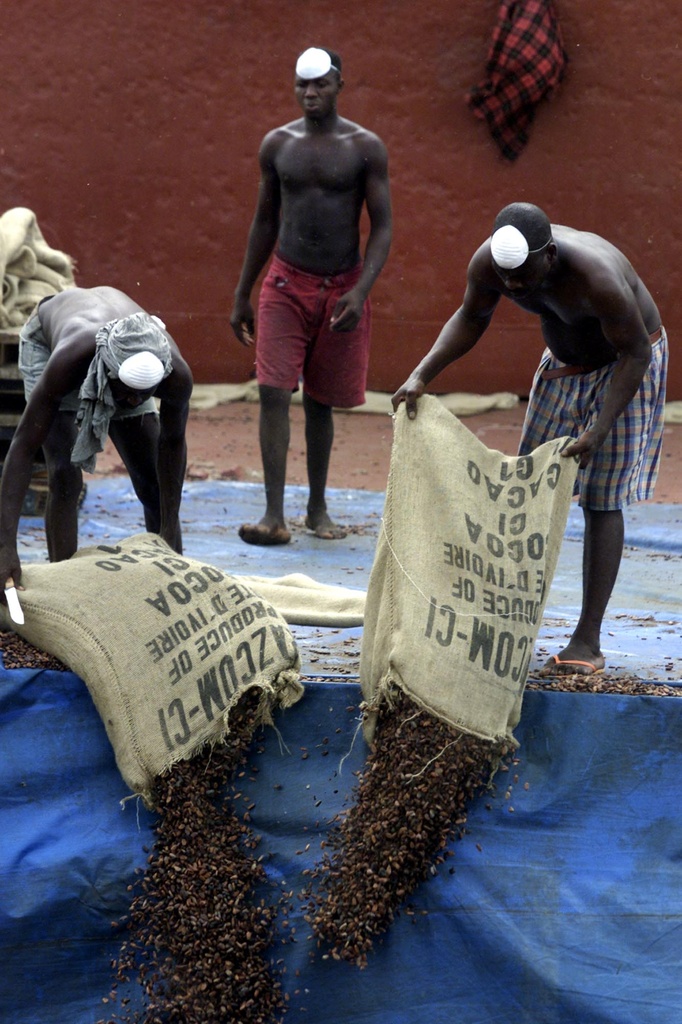
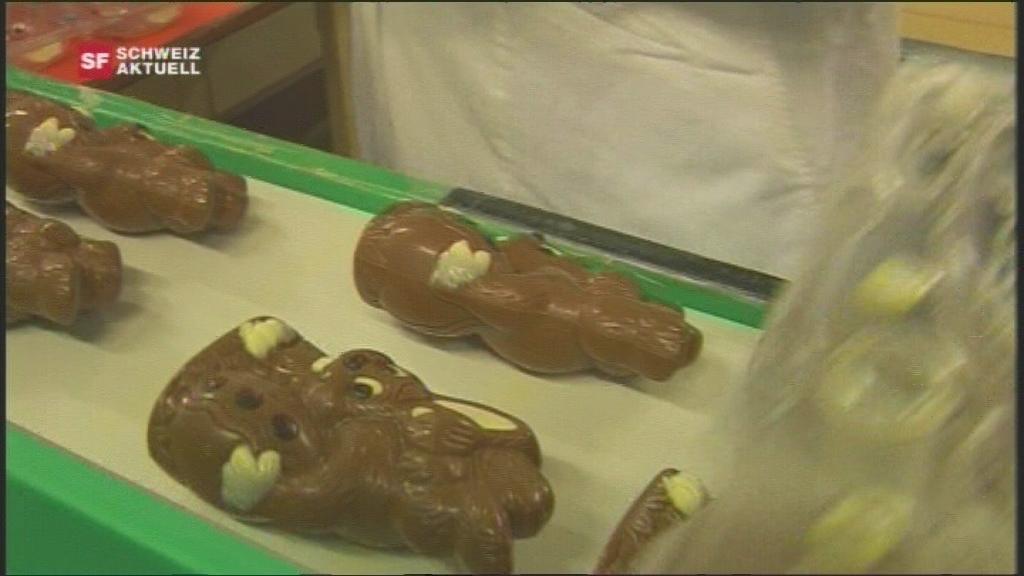
You can find an overview of ongoing debates with our journalists here. Please join us!
If you want to start a conversation about a topic raised in this article or want to report factual errors, email us at english@swissinfo.ch.